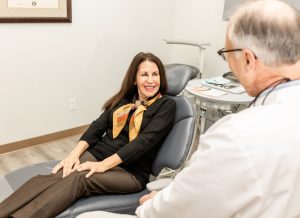Do You Know the Risks of Porcelain Veneer Treatment?
Porcelain veneers are thin, custom-made shells of dental porcelain that are bonded to the front surface of your natural teeth. This cosmetic dentistry method effectively corrects stained, chipped, or gapped teeth with minimal invasiveness, delivering a natural look like real teeth. Unlike composite veneers, permanent veneers made from porcelain offer superior stain resistance and a more natural appearance.
As your trusted cosmetic dentist in Farmington, CT, we believe in transparent communication about both the benefits and risks of any cosmetic dental treatment. With the trend towards minimally invasive procedures continuing to grow as patients seek less painful and costly alternatives to traditional cosmetic dental treatments, understanding these risks becomes even more important.
Schedule a consultation at our dental practice in Farmington today by calling (860) 470-3660. We’re proud to serve patients living in Plainville, New Britain, Hartford, and Newington, CT!
Common Risks of Porcelain Veneers: What Patients in Farmington, CT, Should Know
1. Tooth Sensitivity After Treatment
One of the most frequently reported side effects following porcelain veneer placement is temporary tooth sensitivity. This occurs because the procedure requires minimal tooth preparation, during which your cosmetic dentist must remove a thin layer of tooth enamel from your natural teeth to ensure proper veneer fit.
When this protective layer is reduced, the underlying dentin (which contains nerve endings) may become exposed, leading to sensitivity to hot, cold, or sweet foods and beverages. The good news is that this sensitivity typically subsides within a few weeks as your teeth adjust to their new covering.
Management Tips:
- Use desensitizing toothpaste recommended by your dentist
- Avoid extremely hot or cold foods initially
- Maintain regular dental check-ups to monitor sensitivity levels
2. Potential Damage to Natural Tooth Structure
The process of preparing your natural teeth for veneers involves permanently removing a small amount of tooth enamel. This irreversible procedure means your teeth will always require some form of protection, whether through veneers or alternative dental work.
While modern techniques require minimal tooth preparation compared to older methods, this permanent alteration to your natural tooth structure is an important consideration. Your affected tooth becomes dependent on the veneer for protection and aesthetics.
3. Imperfect Fit and Bite Issues
Even with advanced digital smile design technology, there’s a possibility that your permanent veneers may not fit perfectly initially. Poorly fitting veneers can cause:
- Discomfort when biting or chewing
- Changes to your natural bite alignment
- Speech difficulties or lisping
- Increased food trapping between teeth
These issues often require additional visits to your cosmetic dentist for adjustments or, in some cases, veneer replacement.
4. Gum Irritation and Periodontal Concerns
The margin where your veneer meets your natural gum line is a critical area for oral health. If veneers aren’t properly contoured or if you don’t maintain excellent oral hygiene, this area can become a breeding ground for bacteria.
Gum irritation may manifest as:
- Redness and swelling around the veneer margins
- Bleeding during brushing or flossing
- Bad breath or taste
- Development of gum disease if left untreated
5. Risk of Infection
Though rare when performed by an experienced cosmetic dentist, there is a small risk of infection following veneer placement. Bacteria can potentially enter beneath the veneer if:
- The bonding process isn’t executed properly
- There are microscopic gaps between the veneer and tooth
- Poor oral hygiene allows bacterial buildup
Signs of infection include persistent pain, swelling, fever, or discharge around the treated area.
6. Veneer Damage and Replacement Needs
Like natural teeth, porcelain veneers are very strong. But also, like natural teeth, they can’t withstand an immense amount of force. Habits like teeth grinding, jaw clenching, chewing ice, and nail biting may cause your veneers to chip or crack.
While porcelain veneers are durable and stain-resistant, they can still:
- Chip or crack under excessive force
- Debond from the natural tooth over time
- Require replacement every 10-15 years on average
Frequently Asked Questions
When properly maintained with regular brushing, flossing, and dental check-ups, porcelain veneers don’t inherently increase your risk of tooth decay or gum disease. However, neglecting oral hygiene can lead to problems with the underlying natural teeth and surrounding gum tissue.
Allergic reactions to porcelain veneer materials are extremely rare. Modern dental porcelain is highly biocompatible, and your cosmetic dentist can perform allergy testing if you have concerns about material sensitivities.
Poorly fitting veneers can cause discomfort, affect your bite, and compromise both function and aesthetics. This is why choosing an experienced cosmetic dentist is crucial. Most reputable practices will adjust or remake veneers at no additional cost if fitting issues arise.
Yes, alternatives to porcelain veneers include:
- Composite veneers (less expensive, reversible)
- No-prep veneers (minimal tooth preparation)
- Teeth whitening for minor discoloration
- Dental bonding for small chips or gaps
Make an Informed Decision. Schedule Your Consultation Today!
If you’re considering porcelain veneers and want to discuss the risks and benefits with a local expert, our experienced cosmetic dentist in Farmington, CT, is here to help. We proudly serve patients from Plainville, New Britain, Hartford, West Hartford, and Newington, CT.
Contact us today at (860) 470-3660 to schedule your comprehensive consultation and take the first step toward your dream smile. Our team is committed to providing exceptional care and helping you make the best decision for your oral health and aesthetic goals.
Remember: Every situation differs, and what works for one patient may not be ideal for another. That’s why personalized consultation with a qualified cosmetic dentist near you is essential for achieving the best possible results.

